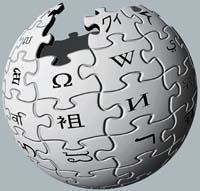Lights and shadows of the wikipedia

The rigour and accuracy of the free encyclopedia on the Internet have been questioned since the time it arose. And it is that anyone can publish an article in the encyclopedia, no one looks at whether the author of the article is expert in the subject. Users themselves correct errors in case of detection. Therefore, to some extent it is logical that this lack of control raises doubts about the contents. However, recently Wikipedia found false and offensive information, and since then the subject of the encyclopedia has gained strength. For example, in the encyclopedia appeared a former assistant of Robert Kennedy involved in the assassination of the president. It was not true, but they published it, and it was within reach of anyone until the former helper realized it. And it is not the only example.
However, now the scientific journal Nature has compared the scientific contents of Wikipedia with the British Encyclopedia and has concluded that in both cases the number of errors is similar. In contrast to the British Encyclopedia, Wikipedia is poorly structured and more confusing.
However, it is a useful tool for many and demonstrates that projects based on free information exchange can move forward. It should be noted that Wikipedia is also in Basque, and currently has more than four thousand articles in Basque (more than 575,000 in English).





